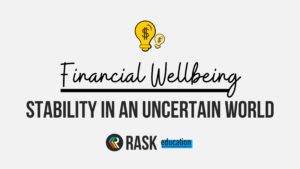Socially responsible investing, ethical investing, impact investing…what does it all mean?
One way I’d like to introduce these three ideas to you is through bread, arguably one on the greatest human creations.
Socially responsible investing
Socially responsible investing is similar to buying bread from the supermarket when you have a gluten intolerance. Any bread is fine to you, as long as it excludes gluten.
To put it succinctly, you’re not too fussed about which bread you buy as long as it hits your key exclusion criteria.
In this sense, socially responsible investing is mostly focused on a particular set of social values and excluding the companies that don’t align. Socially responsible investing might include choosing an ETF that can invest in anything as long as it doesn’t fall under the category of tobacco, gambling and weapons manufacturing companies.
This is a fairly straightforward way to invest and is becoming more common in Australian investment products.
Action tip: Spend some time identifying your non-negotiables when it comes to investing. What are the companies that you want to exclude from your investable universe? We have a great checklist to help you with this in our free ethical investing course.
Ethical investing
When it comes to ethical investing, you start taking your own personal values into account a little bit more.
So, instead of just buying bread that excludes gluten, which is your absolute non-negotiable, you’re also looking for bread that is wholemeal and contains other ingredients that are important to you.
If you’re an ethical investor, you would not only be looking to exclude companies and specific industries that don’t align with you, but you’re looking to invest in companies that align with your personal values and the future you want to see.
Action tip: Think about some of the things you personally value when it comes to investing in companies. This could be diversity within the company's board and senior management, a company focus on reducing carbon emissions or a strong community program.
Impact investing
Impact investing takes it a step further. Not only are you excluding gluten and looking for wholemeal and seedy bread, but you’re also asking questions like are the shop assistants being paid fairly, if the ingredients are organic or researching what the supply chain looks like.
This is because you are considering the impact that the production and sale of this bread has on the community and our planet, not just what it contains and costs.
So if we take this analogy back to investing, you’re not just looking to exclude companies that don’t align with your views and invest in companies that align with your values, but you’re also looking to put your money in companies that are having a positive impact on the community and solving the major problems we’re facing in our modern world.
Your focus is not solely on financial returns but whether your investment impact is having a positive and measurable impact on the world.
What exactly does that mean?
Impact investing could include investing in companies solving issues and creating innovative solutions in clean technology, affordable housing, mental health and waste management.
But, at the end of the day it doesn’t really matter which investment style you follow, the most important thing is that you’re investing in ways that suits you.
To be comfortable investing over a long time period, you need to invest in a way that allows you to sleep at night, that you understand and that aligns with your values. Otherwise, it’s difficult to hold your nerve when periods of significant market volatility occur and you start getting scared (which is a completely rational emotion when you’ve put your hard earned dollars in the market).
Takeaway: Reflect on these ideas and what they mean to you and the way you want to invest. It may just be as simple as a gut feel check to examine whether each investment you have aligns with your values, or might require some further research and consideration.




